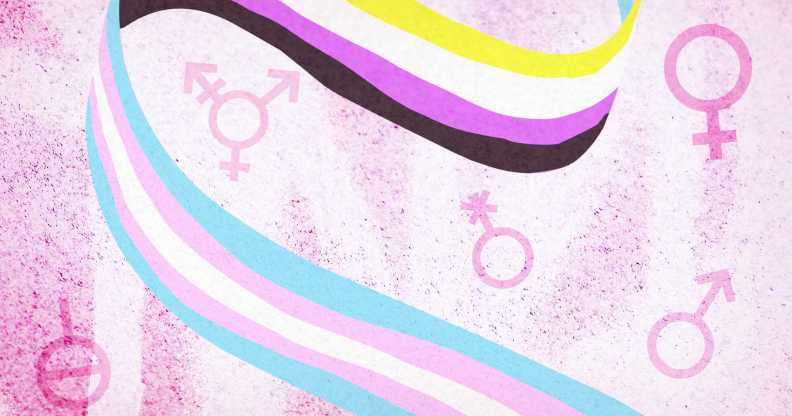Everything you need to know about Gender Recognition Certificates and how they help trans people

The UK government is cracking down on countries that make it easier for trans people to obtain a Gender Recognition Certificate. (PinkNews)
The UK government is cracking down on countries that make it easier for trans people to obtain a Gender Recognition Certificate. (PinkNews)
In the UK, a Gender Recognition Certificate (GRC) is a document that legally affirms someone’s gender.
A person’s gender is initially registered at birth, so GRCs allow trans people to be recognised by how they identify if that does not match the gender assigned at birth.
It is important to note people can only be recognised as male or female because non-binary genders aren’t legally recognised in the UK.
The documents are approved by the government and mean your legal rights and responsibilities correspond with your preferred gender.
Such affirmation in the UK became possible with the introduction of the Gender Recognition Act 2004, which, by its long title, is to “make provision for and in connection with a change of gender”.
Different countries have different approaches to gender affirmation, with countries such as Ireland, New Zealand, Norway and Switzerland allowing people to self-declare their own gender identity without the need for a medical diagnosis of gender dysphoria.
Scotland is also set to adopt a self-declaration system after the Gender Recognition Reform (Scotland) bill was passed by the Scottish parliament in December 2022.
What is a Gender Recognition Certificate used for?
Once you have a Gender Recognition Certificate, in the eyes of the law, you are considered to be the gender stated on the certificate from the date of issue.
However, it is not retrospective and does not rewrite your gender history.
Having a GRC means people are able to get their birth certificates replaced to reflect their legal gender.
As stated by the NHS Gender Identity Clinic, it is usually illegal for people who obtained the knowledge in an official capacity to share that you once had a different gender when you have a GRC.
Things like name changes need to happen before applying for a GRC because the government does not update names after GRCs are issued (the certificate is still valid regardless).
There are many things that can be done to affirm one’s gender identity that doesn’t require a GRC, like legally changing one’s name or updating driving licences, passports, NHS registration documents or employment records.
How do you obtain a Gender Recognition Certificate?
The process of obtaining a Gender Recognition Certificate in the UK is by no means short and is not necessarily simple either.
The application is put to a gender recognition panel, which is made up of legal and medical experts.
You must be at least aged 18 to apply and have lived as your affirmed gender for at least two years, swearing that you intend to do so for the rest of your life.
Evidence for this can include showing the use of a different name in official documents or changing your identity on documents like a driving licence or passport.
People also require a medical diagnosis of gender dysphoria, which itself can take years because of incredibly long wait times at NHS gender clinics.
A second medical report is also required, with at least one of them including any gender affirmation a person has had or plans to have, or explain why not.
At least one of the reports has to be written by a UK-registered medical doctor, with a UK-registered clinical psychologist being allowed to write the other one instead. Whoever makes the gender dysphoria report has to practice in that field.
The government website states that these reports don’t need to be specifically written for an application and people may already have suitable records.
There is an alternative process that allows people not to have a gender dysphoria diagnosis, but among a list of strict requirements is already having had gender affirmation surgery.
People with GRCs, or similar, from another country, only have to be aged over 18 and have documentation showing their affirmed gender is legally recognised there.
If you’re married or in a civil partnership, your partner has to sign a document agreeing to you getting a GRC.
If they don’t, you can only get an interim certificate that is valid for six months – and then you can get a full one once you’re no longer married or in a civil relationship.

